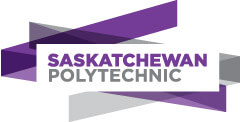About Automotive Service Technician in Saskatchewan Polytechnic
Program Overview
If you enjoy working on cars and trucks, Saskatchewan Polytechnic’s Automotive Service Technician program can fast-track you into a career. In less than a year, you could be working as a technician in an automotive shop, car and truck dealership, specialty shop, service station or transportation company.
You’ll need good problem-solving skills, mechanical aptitude and manual dexterity. At the end of the program, you’ll have transferable skills you can apply to other trades, including agricultural machinery technician, heavy duty equipment technician, truck and transport mechanic.
Automotive Service Technician is a one-year certificate program offered in Moose Jaw and Saskatoon. You’ll learn how to diagnose, repair, service and maintain advanced mechanical and electrical systems in today’s vehicles. Get practical, hands-on training in:
- body and trim
- brakes and chassis
- charging, ignition and starting systems
- clutches and drive lines
- electronics and electrical systems
- engine repair and rebuilding
- fuel and emission systems
- general shop procedures
Learn in Well-Equipped Shops
Learn from highly trained instructors in Saskatchewan Polytechnic’s well-equipped automotive shops. You’ll work on real vehicles donated by local dealers and other sources. You’ll use industry-leading diagnostic and servicing equipment, including tools unique to specific manufacturers. By the time you graduate, you’ll have the kind of practical, hands-on training and experience you will need.
Your Career
When you graduate, look for jobs as an apprentice technician in an automotive shop or service station, in the service or warranty department of vehicle dealerships, in engine machine shops and engine building plants. You could work for a public transit agency, a transportation company or a large company that maintains a fleet of vehicles.
Academic qualification equivalents:
- Secondary School Diploma or equivalent, include one English, Grade 12 (ENG4C or ENG4U), minimum 60%
English language requirements (one of the below):
- IELTS : Overall minimum score of Band 6.5 with a minimum score of 5.0 in each component.
- TOEFL : An overall minimum score of 81 on the Internet-based Test of English
- PTE : A minimum score of 63 with minimum component scores of 50.
Saskatchewan Polytechnic Highlights
| Type |
Public |
| Campus Setting |
Urban |
| Application mode |
Online and Paper mode available |
| Graduation rate |
62% |
| Acceptance rate |
96% |
| Number of Students |
16,008 |
| Overall cost of living |
14,762 CAD |
| Academic calendar |
Semester based |
| % of International students |
6% |
| Number of campuses |
4 |
| Medium of instructions |
English |
| Undergraduate Tuition fee |
14,044 CAD |
| Postgraduate Tuition fee |
16,426 CAD |
| Cost of living |
694 -1147 CAD per month |
Saskatchewan Polytechnic First-Year Tuition Fees And Living Expenses For International Students
Over the course of one academic year, the following graph displays tuition and living expense estimates in Canadian currency for one full-time international undergraduate student. Please bear in mind that these are only estimates; actual pricing will vary depending on your needs and preferences. Other factors to consider include currency changes, visa and study authorization fees, and vacations back home.
- For international students, the overall fees will range from:-
| Particulars |
Amount |
| Administrative fees |
50.00 to 150.00 CAD |
| Application fees |
150 CAD |
| Student association fee |
95.00 to 445.00 CAD |
| Non-refundable fee at the start) |
1,000 CAD |
| Tuition fee range |
6,195 to 18,089 CAD |
| Laboratory fee |
100.00 to 409.00 CAD with no fees for
some courses which do not have a lab service. |
| Books and Supplies |
200 to 3,725 CAD |
| Technology fee |
50 to 146 CAD |
- For a student of Saskatchewan Polytechnic the required financials (Cost of Attendance) can be:-
| Description of Financials |
Amount in CAD |
| Average cost of tuition |
11245.77 CAD |
| Cost of living |
10799.39 CAD |
| Application fee |
150 CAD |
| Estimated total (per year) |
22,195.16 CAD |
